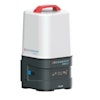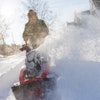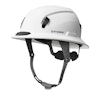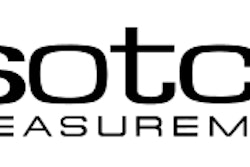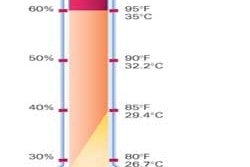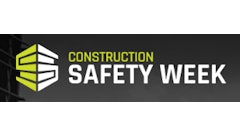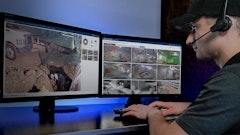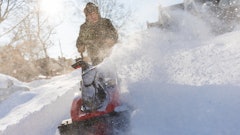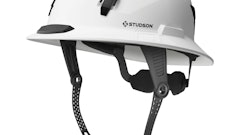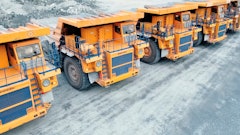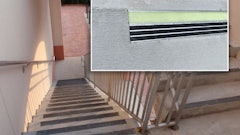Did you know that normal, 120-volt electrical power can kill you? Do your customers know this? According to information provided by Sotcher Measurement, 120-volt power kills about 1,000 people a year.
As a rental business, you no doubt have your share of electrically powered equipment. When renting it to customers, it's your job to ensure the equipment itself is safe. One way to do this is to start with high-quality equipment and then inspect and test the equipment with reliable electronic testing supplies.
Dick Detmer, Detmer Consulting Inc., has been in the rental industry for over 35 years and is one of the biggest believers in electrical safety testing.
"As a consultant, I have visited thousands of rental stores throughout the United States, and I've seen it all," says Detmer. "I find there isn't enough emphasis on this subject, and it really shocks me that in some rental businesses, electrical safety is not an important subject. It should be one of the most important subjects for a rental business."
Marc Sotcher, president of Sotcher Measurement agrees. "Every rental business should be testing with something," he says. "Electrical testing equipment is not a ‘profit producing' type of tool, but it's very important for the safety of your customers."
Taking safety seriously
Joe Rupe runs a Grand Rental Station outlet in Crystal Lake, IL, with his wife, Pat. Open since 1992, their rental business supplies a complete line of party and general equipment to homeowners, industrial customers and small contractors.
Later, the family opened a second and third store in northern Illinois and in 1999, their son, Eric, joined the business and is now the president and general manager.
The Rupe recipe for business success has been a commitment to providing superior service linked to the supply of high-quality equipment - and ensuring the safe operation of all rental products is high among their top priorities.
As part of the TruServ rental co-operative, Joe Rupe is part of a small group of rental store owners who regularly review best practices and strive to raise the standards of the industry. Recently, he has undertaken an evaluation of new electrical safety testing instrumentation introduced by Clare Instruments US Inc.
"When we were asked to evaluate the Clare safety test equipment we welcomed the idea, as we were in the middle of improving our safety program," Rupe says. "We feel that anything we can do to enhance safety for our customers and employees adds to our professional image. We also find that good safety programs make it easier for us to get better rates of insurance - an important factor for a small business."
John Villarosa, owner of Oakland Rentals in Oakland, CA, has been using Sotcher units to test his electrical equipment for the last 11 years. The single-location Oakland Rentals caters to a 50/50 mix of homeowners and contractors. Villarosa is also very serious about safety.
"The number one reason we use a tester to check our electrical equipment is for the safety of the customer," says Villarosa, who has been in the rental industry for 25 years. But he notes, safe equipment is more productive and more reliable equipment, and that's an added benefit of testing before sending units back out on rent. "Having safe, reliable equipment is great for the image of my rental business. Word gets around that you have safe, reliable equipment, and people will come to you."
Another added benefit is using the electrical tester as a diagnostic tool. "These testers will catch problems that can't be caught with a visual inspection," says Villarosa. "We've had instances when a piece of equipment looks okay to the eye, but when we tested it, we found that there was an insulation problem or a leakage occurring. Testers help us diagnosis any problems before the equipment leaves the store and is in the customer's hands."
Testing importance
Testing electrical equipment should be a basic part of checking rental equipment in after a rental. According to Sotcher, the first step is having a return area for all items. Nothing should be allowed to be placed back in inventory without an inspection. It's a good idea to have a list of key inspection points posted, by product type, that must be checked.
The checklist should include a verification that the safety guards are in place, safety signs are clear and easy to read, the power cord and plug are in good condition and free of nicks, the strain reliefs are tight and functional. Loose or missing strain reliefs are a major contributor to electrical accidents with power tools, according to Sotcher.
No electrical product should ever be placed back in your rental inventory without testing. Sotcher suggests all electrical products should be tested for ground wire continuity (unless double insulated), leakage current and operation. One simple test to perform is a measure of the tool's current draw. Most hand tools should draw one half or less of their rated current, while they are free running. This test indicates if a product has a dragging bearing or a shorted coil that will stop it from performing its job. Also to be tested are switches and ground fault interrupters.
Record your results
It's a good idea to keep a record of every inspection and test performed on each item. According to Sotcher, the service tag is the simplest method of doing this. The tag is filled in at the time the inspection and testing is done and then attached to the product.
When the item is rented, the tag is removed and attached to your copy of the rental contract. That way, if there should ever be an accident with one of your rental items, you need only find your copy of the rental contract to prove the product was safe when it left your store.
Villarosa with Oakland Rentals says testing electrical equipment and using Sotcher's Ready-to-Rent tags is the only way he can prove to his insurance company that the equipment was tested and deemed safe before it was sent out on a rental.
"Using the electrical tester and tag system from Sotcher probably has reduced my insurance rates because I haven't had any claims to report from unsafe electrically powered equipment," he says.
The SafeCheck 8 from Clare Instruments US Inc. provides comprehensive testing for electrical tools and rental equipment. It also has the ability to record details of all test results, including time and date of tests, as well as the identity of the person carrying out the test. This data is stored in the unit's internal memory for subsequent print out of test reports, providing a fully traceable audit trail for quality assurance and safety management purposes.
The SafeCheck 8 is also designed to be used with a Test ‘n' Tag safety labeling system. This enables durable test labels to be printed automatically via the tester for immediate attachment to electrical items and/or their cables.
"We had an older electrical safety tester but it had no recording capability, and we now recognize that there were some shortfalls in our test procedures," Rupe admits. "When you have several customers standing waiting to be served, you can't take the time to run an electrical test."
The new test protocol in Rupe's operation requires each returned electrical item to be brought to the test station after cleaning. A visual inspection is made for any obvious damage and the results are fed into the SafeCheck 8. If the old safety label is still on the cable, the bar code is scanned and the software program automatically brings up test details for that particular tool. If the tag is missing, the product inventory number is entered into the tester and the test details for the unit are generated. Safety tests are then run automatically as prompted by the tester.
At the conclusion of the test a new label is printed. If the tool passes the safety test, the new label is attached to the power cord and the unit is put back in stock. If the unit fails, a ‘failed' label is produced and the unit is transferred to the maintenance shop.
At the time of rental, the product is brought to the rental counter where the unit is checked to see that it has a ‘pass' tag on the cord. The bar code on the tag is then scanned to enter the item on the rental contract.
"This process assures us that the unit has been tested and also assures us that the correct unit is on the contract," says Rupe. "If at any time there are any questions about the safety test, we can access the records in the tester to review the test history of any item."
Maintaining productivity
Maintenance is key for the ultimate long-term return on your investment from your electrically powered equipment.
Any item red tagged during your inspection should be sent directly to the repair area, according to Sotcher. People making the repairs should be trained in the product they're servicing and no one should be allowed to perform any electrical servicing unless he or she has a clear understanding of electrical circuits.
In the interest of improving productivity and making testing easier, however, modern instruments operate with auto test sequences and help screens that enable tests to be carried out automatically.
So when a rental business is looking to add an electrical tester to its shop, where should it start?
"Electricity hasn't changed at all - it's an old science," says Sotcher. "There are units out there - and we also have several high-end versions available - that have a lot of bells and whistles, but as far as rental businesses go, they probably don't need a lot of flash."
Sotcher says the most important features to look for are ease of use and reliability.
"I can train a new user on the basics of our system in a few minutes," says Sotcher. "You really want something that is easy to use. And you want a tester that is reliable and will last for years."
Sotcher says you should also consider the volume of equipment you'll be testing as well if your rental business does repairs. This will determine the features your rental business will need from an electrical tester.
"As I mentioned, most rental businesses don't need a flashy tester," he says. "But if you have a high volume of equipment you're going to be testing or you're repairing equipment - which means you'll need additional features to ensure the tool is ready to rent after repair - you might need a higher-end tester."
The bottom line is following any service, a visual inspection and test should be performed and a new tag filled out and attached to the tool.
"Electrical testers are very easy to use and affordable," says Sotcher. "It's really important that every rental business start using something - whether it's a basic unit or high-end unit - to test their equipment for the safety of their customers."
Villarosa with Oakland Rentals concurs. "Electrical testers are crucial," he says. "I wouldn't run my store without one. They're worth every dollar."

